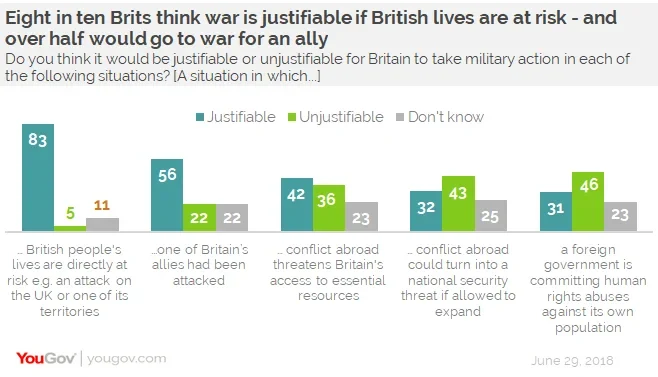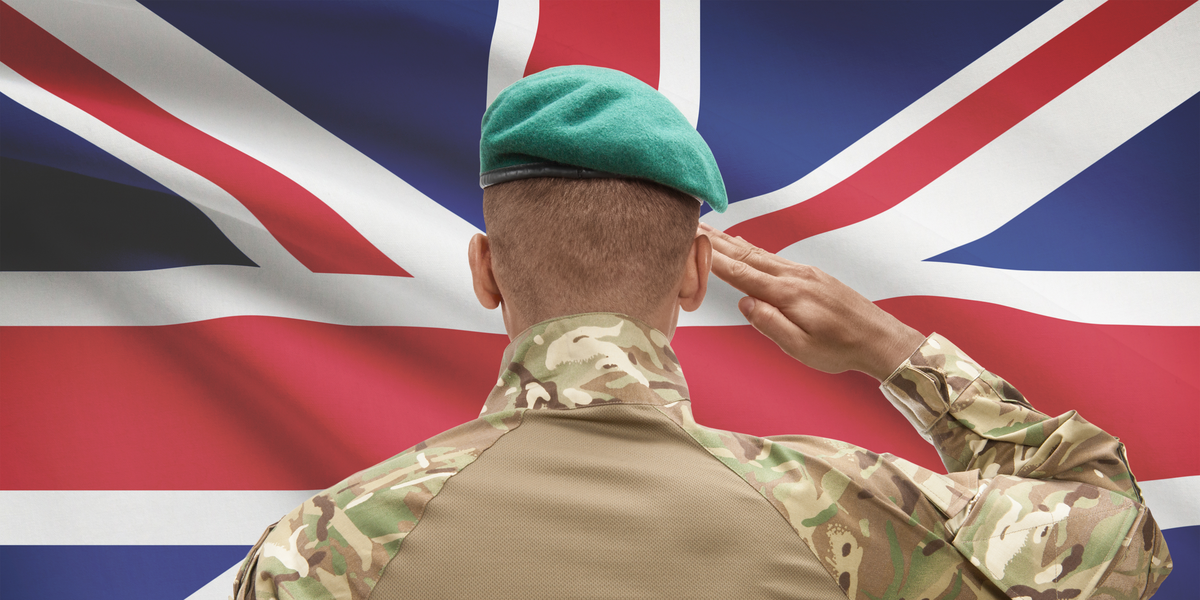YouGov asks the nation about whether they think armed conflict is justifiable, whether they would put themselves forward, and if national service should be reintroduced
TWITTER FOLLOW
This week, French president Emmanuel Macron announced a compulsory one month programme of national service for young people in France. The time could be served either in the military, or by undertaking another form of civic service such as voluntary teaching or a working with a charity.
The aim of the programme is to promote a sense of civic duty among France’s youth, enabling them to “develop their role in society”.
As the UK marks Armed Forces Day, recent YouGov research shows that just under half of Brits (48%) would support a month’s compulsory military service for young people in this country. Older people are significantly more likely to be in favour of the policy than the younger generation, with three quarters (74%) of those aged 65 and above supporting the idea compared to just one in ten (10%) of 18 to 24 year-olds.
Would you go to war for Britain?
However, YouGov’s research shows that Brits are far less likely to put their lives on the line if war were to break out.
Only one in five (20%) would join the armed forces in the case of a war of similar severity to World War II – down from one in four (25%) when YouGov asked the same question in January 2016.
Those aged 25 to 49 are least likely to be willing to go to war, with only one in six (16%) saying they would, compared to around one in five under-25s (23%), 50 to 64 year-olds (22%), and those aged 65+ (21%).
Men are more than twice as likely to put themselves forward for war as women, with just over a quarter (27%) saying they would in comparison to around one in eight (12%) women. Notably though, women are more likely to support a month of national service, with 50% saying they would compared to 45% of men.
The notion that readiness to join the armed forces is driven by class does not seem hold true in terms of people’s willingness to fight. Middle class people in the ABC1 social grade are almost equally likely (19%) to say they would join the forces as working class people in the C2DE category (20%).
However, those in the middle classes are 13 percentage points less likely than those in the working classes to support a month of national service for young people.
Over half believe Britain should go to war for its allies – but less than a third think it should if a foreign government is committing human rights abuses
Reluctant though Brits are to put themselves forward for the armed forces, eight in ten (83%) believe that if British lives are at risk, the nation is justified in going to war. Furthermore, more than half (56%) think it is justifiable if one of Britain’s allies is under attack.

However, fewer than one in three (31%) believe war is justified if a foreign government is committing human rights abuses. Brits are similarly sceptical about intervening in a situation where British people and resources are not directly threatened but where they could be if the conflict expanded. Here, 32% see involvement as justifiable.
Young people are twice as likely as older people to support intervening if a foreign government is committing human rights abuses. While 44% of under-25s see engaging in conflict is justifiable under these circumstances, this falls to 22% of those aged 65 and above.
See the full results on joining the armed forces, and on national service.
Photo: Getty










